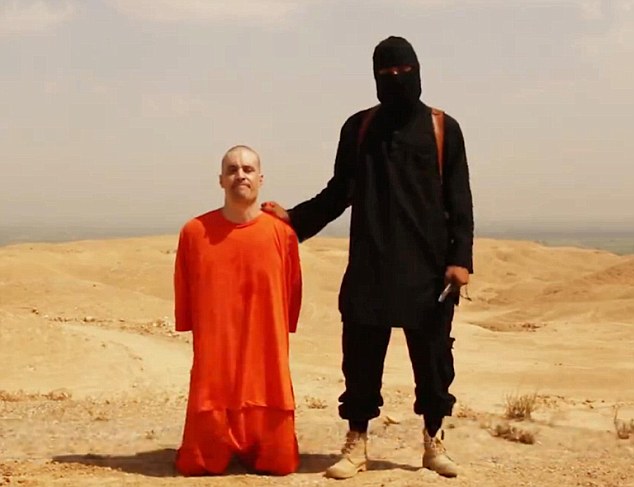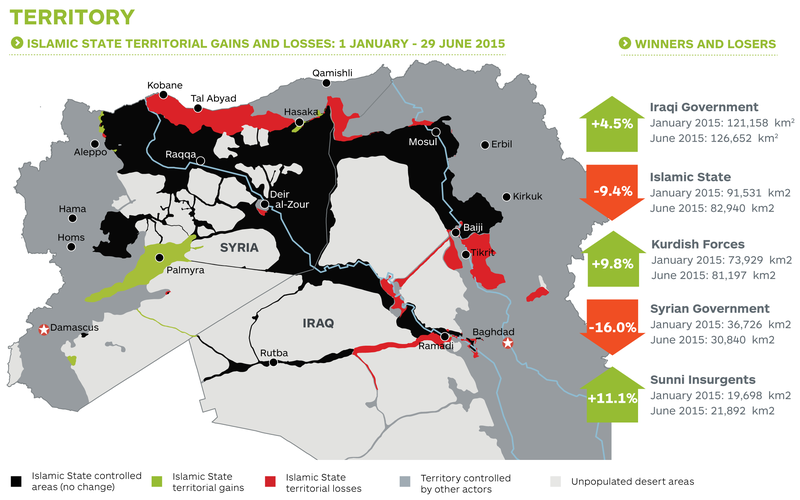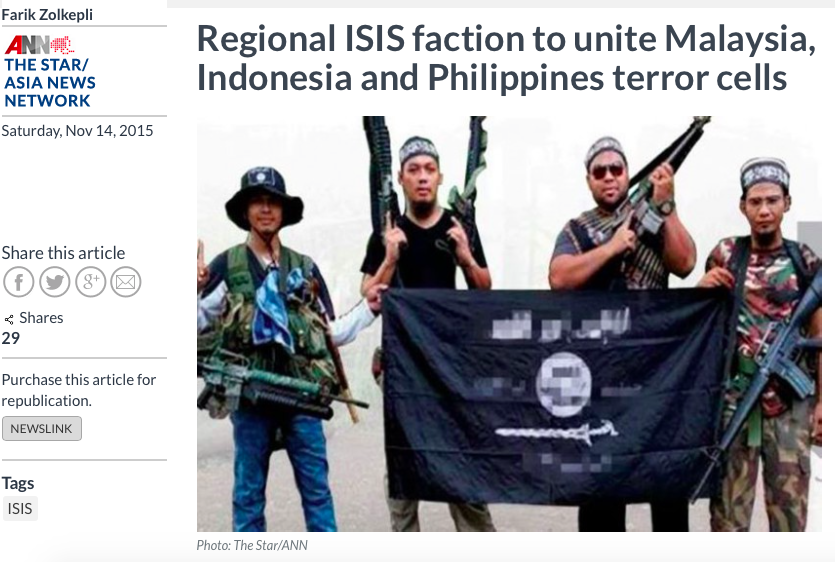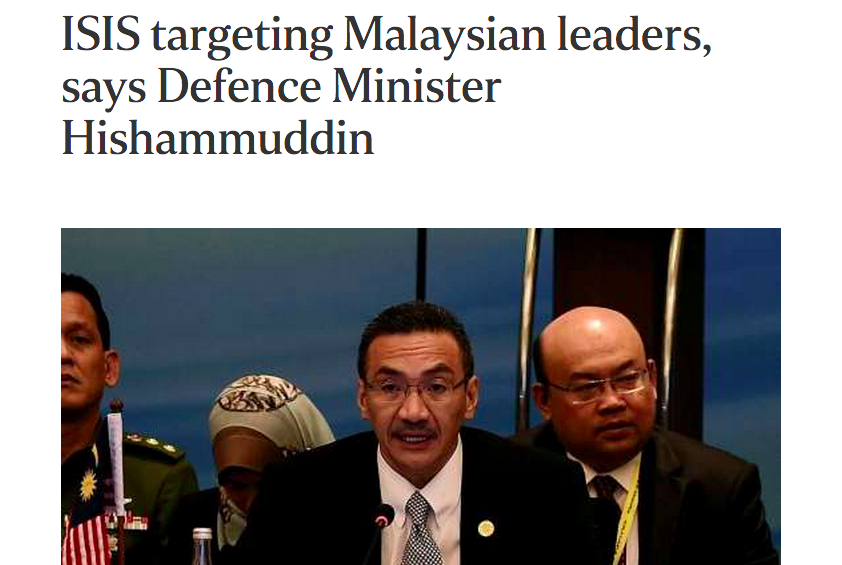The Islamic State of Iraq and al-Sham (ISIS) has largely faded into the background — of our consciousness, at least — in recent months, but certainly returned front and centre of the world's focus over the weekend with the spate of Parisian attacks it has claimed responsibility for.
With some 129 dead so far, and more than 350 others injured (including 99 who are critically so), the world has responded with outrage and grief, and more questions about why this has happened.
Thanks to helpful sites like Vox and Wait But Why, we have put together a list of 10 things a worldly-wise Singaporean should know about the ISIS:
1. They have quite a number of names:
- Jamaat al-Tawhid wal-Jihad, which means "Unity and Jihad" — their first name when its initial group first formed in 1999.
- Tanzim Qaidat al-Jihad fi Bilad al-Rafidayn, which means "al-Qaeda in Iraq" — this after their founder pledged allegiance to al-Qaeda in 2004.
- The Islamic State of Iraq, when it took over territory in Iraq in 2006, and then The Islamic State of Iraq and al-Sham (which loosely refers to an area in the Middle East that includes Syria) by 2013, when they had started to occupy parts of Syria too. It also gained the sometimes-used "The Islamic State of Iraq and the Levant", because "Levant" is the English translation of "al-Sham".
- "al-Dawla al-Islamiya fi Iraq wa al-Sham" is what ISIS's full name translates to, which is truncated to the acronym DAIISH (and spelled "Daesh" in English). Because the word sounds like "dahes", an Arabic word which means "one who sows discord", though, ISIS bans the use of this word, hating the insulting connotation, and that's why leaders like French President François Hollande and US Secretary of State John Kerry deliberately use it, at the risk of people not understanding it to be ISIS.
- Now, those fickle folk don't even use ISIS anymore — they now call themselves "the Islamic State", since they see themselves as a caliphate (a state ruled by a leader [and successor of the Prophet Muhammad] under Islamic Shariah law that will eventually lord over all the world's Muslims) and should not restrict themselves to Iraq and Syria.
Why the concern with names? It's quite an ideological thing, really. The name "Islamic State" means they are not a terrorist organisation (in their minds, obviously), but instead an Islamic government, to whom all true Muslims should pledge allegiance to. So if you're not happy with them, you could try calling them "Daesh" instead. "Those wicked folk wreaking havoc in Iraq and Syria" may work as well.
2. They are (no longer) a part of al-Qaeda.
Yep, they used to be, as you can see from point 1. What you need to know from this is, though, that they grew too violent for al-Qaeda, and defied warnings from them to stop killing so many civilians, and after overcoming Jabhat al-Nusra (al-Qaeda's Syrian branch), they started splitting from al-Qaeda in 2013 and were formally ejected from the network in February 2014.
In fact, they're now in competition against al-Qaeda to see who can recruit more people into their army (currently, ISIS seems to be winning), as well as to surpass them in brand recognition around the world (guess they're doing that pretty well too).
3. There is a method to their madness.
Underestimating them as a crazed group who want nothing but bloodshed would be a grave mistake.
For all the fickleness they have with their name, the ISIS has always had a clear goal in mind: to establish a caliphate governed by an extremist interpretation of Islamic law.
Here are some of the strategies they employ to establish their caliphate:
- exploit the strained ties between Sunni and Shia Muslims (two groups who have historically been in conflict and won't reconcile) and their competing brands of Islam within Iraq and Syria. ISIS consists mainly of Sunni Muslims, and so chiefly taps on unhappy Sunnis, who think Iraq's Shia-led government is lording unjustly over them.
- strike fear into the hearts of civilians, who are often faced with the "choice" of converting/complying with their harsh rule, or death (this is what happened to minority groups like the Yazidis).
- capture foreign, especially Western, hostages, dangle them as bait in a bid to raise money or stop their parent countries from attacking their bases, and then kill them in brutal, horrifying ways (usually by beheading, once or twice by burning them alive. On video).
And this brings us to our next point on how they maintain their activities:
4. They are funded through
a) extortions — from humanitarian workers and "taxes", which it levies on Christians and Muslims they don't like as a condition of being kept alive. It can do this because Syria, currently still in the midst of a civil war, is in disarray, so ISIS pretty much said "Hey, let's take over and become Syria's tax collectors — but keep all the money collected for ourselves."
b) oil. They started out early on aiming to capture quite a few oil-rich areas straddling both Iraq and Syria, and have successfully obtained some, and they sell the oil on the black market. Reports in late-2014 said that they were earning up to US$2 million from this each day.
5. They're not just about adhering to an extremist interpretation of the Qur'an. Politics is involved in ISIS's campaign too.
Many say that Muslims who support the ISIS do so because they subscribe to their extremely literal interpretation of the Qur'an — and perhaps this is true of the foreigners who have joined their army.
That said, we all know the majority of Muslims around the world strongly oppose them, though, and distance themselves from them too, even deeming them as "not Islamic".
For the Sunnis in Iraq and Syria, though, it's more about politics, because they've long felt oppressed by Shia-dominated governments in both countries.
Contributing to this, especially in Iraq, was actually Saddam Hussein's reign. Saddam, who was Sunni, convinced Sunni Iraqis that they form the majority in the country, even though they are not, and this belief has stuck with them ever since.
6. They're also not as unstoppable as they seem (In fact, they're losing ground in Iraq).
Many experts who have been studying and following the conflict closely are also pretty convinced ISIS will eventually fall and lose all the territory it currently controls, both in Iraq and Syria — it's just a matter of time. You can read more about this here.
7. Iraq's fight against ISIS has brought Iran into the mix to help, but this makes things kind of tricky for Iraq:
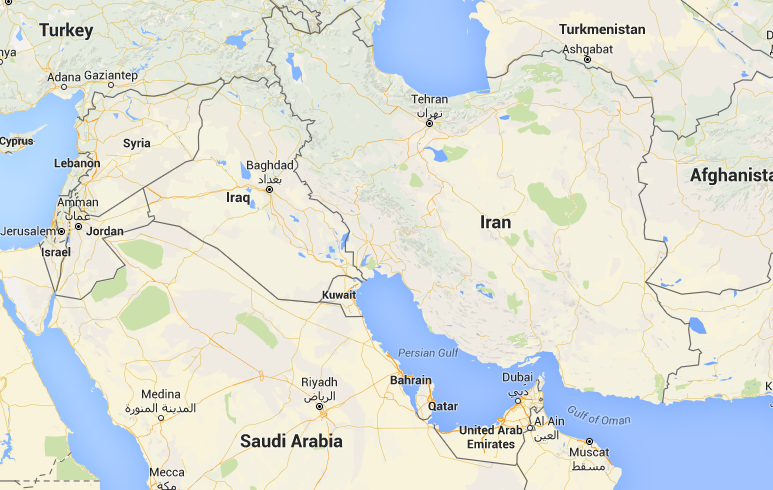 Screenshot from Google Maps
Screenshot from Google Maps
Iran is a country located near Iraq and Syria. It shares a pretty big border with Iraq and so obviously has great interest in what happens in Iraq. Iran also happens to be one of the few countries in the Middle East that is majority-Shia.
Iran aligns itself with the Shia — i.e. the governments of Iraq and Syria — and it is also completely in their interest to rid the world of the ISIS, which is a Sunni militant group. So, for now, the interests of Iran and Iraq, as well as the anti-ISIS rest of the world are aligned.
Now, there's a group of Shia militants living in Iraq, who are greatly helping out the Iraqi army (currently at less than 20 per cent of its original size because the Sunni soldiers thought it didn't make sense to defend a government that was whacking their fellow Sunnis, and also because ISIS fighters, from what we've seen, are pretty much willing to do anything to get their "caliphate" going). Because they're Shia, Iran is helping them with cool weapons and stuff.
But why's this tricky? Because the current Iraqi prime minister, Haider al-Abadi, who is trying to accommodate the war-torn country's aggrieved Sunni population, will face a tough situation with the powerful, and pretty dangerous, Shia militants, who are accumulating political points in the fight (because they're helping with lots of key victories against ISIS).
So yes, Iran's and Iraq's competing long-term objectives (Iran's, to see Iraq continue to be Shia-dominated, and Iraq's, to try to treat its Sunni citizens better) will in all likelihood bite Iraq in the future, even if ISIS is successfully taken down.
8. Of their hundreds of hostages, they've beheaded more than 10 journalists, foreigners and aid workers in the past year, and put their videos online.
This is the late Steven Sotloff, an American-Israeli journalist who was trying to tell the stories of the suffering of people living in Syria.
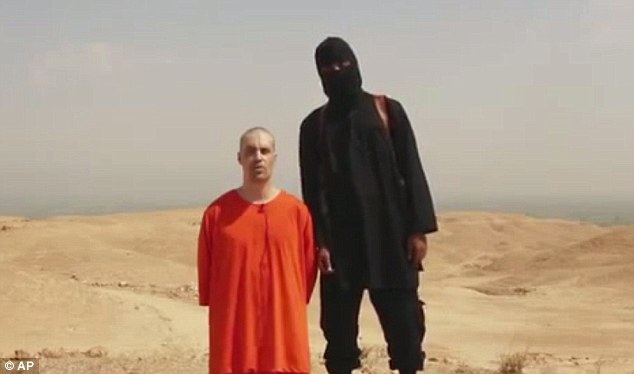 Screenshot from video
Screenshot from video
And yep, the above is a screenshot from a video ISIS put up that screened his live execution by beheading.
Of course, there were others — five Iraqis (as well as another five of their colleagues killed in a 2013 suicide bombing) and three foreigners (James Foley, Steven Sotloff and Kenji Goto), as well as six more guys who weren't journalists — in fact, three of whom were aid workers (David Haines, Alan Henning and Peter Kassig).
The grisly videos earned them many enemies, but it also helped amplify their message internationally as various news agencies and websites reported what they said repeatedly.
And here are two points that might hit closer to home:
9. They're apparently trying to set up a Southeast Asian unit:
This, perhaps, follows the establishment of the ISIS's Malay Archipelago combat unit in August 2014. It's called Katibah Nusantara, which operates out of Syria in Bahasa Indonesia and Malay so that it can accommodate Southeast-Asian fighters.
Now, all these folks have to do is to make it to Syria to pledge allegiance — and from what we know, Singapore, Malaysia and Indonesia are doing all we can to stop them from doing so.
Check out what Prime Minister Lee Hsien Loong had to say about this in May this year:
ISIS'>
Posted by Lee Hsien Loong on Friday, 29 May 2015
10. Malaysia thinks the ISIS is targeting their leaders, and Singapore hasn't entirely been left out either:
In May, there was also a report from the S Rajaratnam School of International Studies that Singapore was identified as a possible target in an ISIS social media post. Meanwhile, this report explains why we could very well be one, if/when ISIS's Southeast Asian branch somehow manages to open.
And that's why you actually do need to know who ISIS is, what they're doing, and educate people you care about, instead of declaring them plainly as "unIslamic" and ignoring them altogether.
Top photo: screenshot from video
Related articles:
Singaporean’s response to ISIS attacks goes viral internationally
Temasek Holdings CEO Ho Ching explains why everybody feels for Paris
Here are some considered responses to the Paris attacks that put everything into perspective
If you like what you read, follow us on Facebook and Twitter to get the latest updates.
